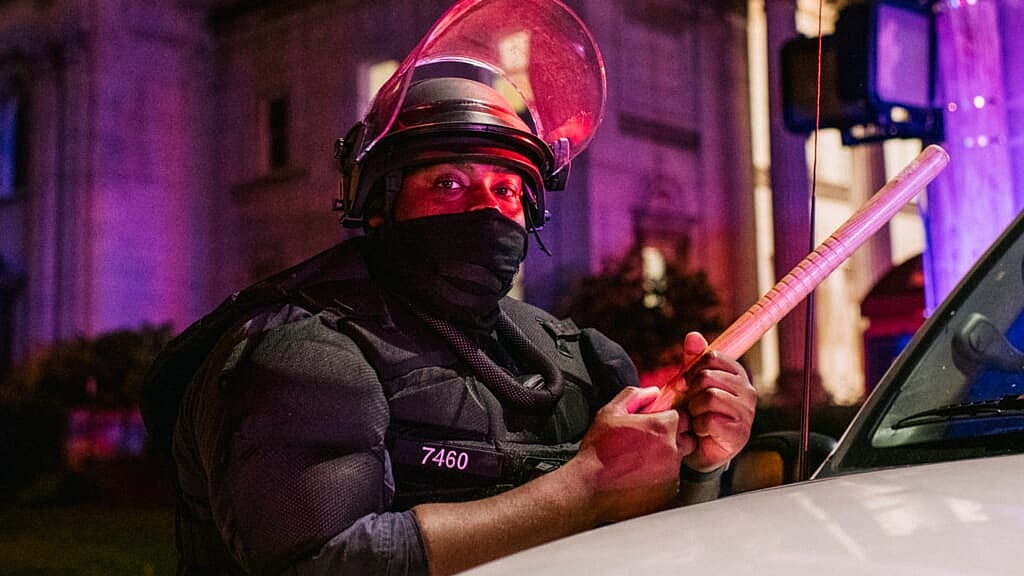The Louisville Metropolitan Police Department has been in the national spotlight for months following their officers’ fatal shooting of 26-year-old emergency medical technician Breonna Taylor in her own home.
However, a new report from the Louisville Courier-Journal alleges that corruption within the department reportedly extends to at least 738,000 sexual abuse complaints against officers.

between the hours of 9 p.m. to 6:30 a.m. (Photo by Brandon Bell/Getty Images)
The explosive story comes after a year-long investigation into sexual abuse allegations against two officers who supervised the department’s Explorer Scout program for youths who are interested in careers in law enforcement.
The newspaper filed an open records request and was told by the department and Jefferson County district attorneys that they were unable to comply because the records had been turned over to the FBI, which was investigating the incidents.
Read More: Arkansas police chief resigns after making comments about ‘death to all’ Democrats
However, in an appeal, the newspaper learned that the department still had 738,000 records that the city of Louisville allowed them to delete.
In a letter to lawyers for The Courier Journal sent in late October “amending previous factual statements made in error,” Assistant County Attorney Roy Denny admitted that 9,700 folders that contained 738,000 documents — a total of 470 gigabytes of data — was located on a secret folder.
Read More: Bucks’ Sterling Brown awarded $750K settlement in police brutality case
Those files would have been accessible on Louisville’s encrypted backup system for 30 days, Denny said, but since that much time had passed, there was no way they could be recovered.
The Courier Journal’s editor, Richard Green, noted that the failure of the LMPD to turn over the documents points to a systemic issue within the police agency to build trust and protect the public.
“The Explorer case represents a total breakdown in trust between police and teens who had an interest in the law enforcement profession,” Green said. “To now dodge the public’s access to these documents speaks to an institutional disregard for the Open Records Act and the very residents LMPD is to serve and protect. My frustration with how it’s been handled only underscores our commitment to dig even deeper and hold those in power to account.”
Read More: Wallace family calls for firing of officers, police reforms
The program was reportedly rampant with sexual abuse claims beginning in October of 2016 until the program was shut down in March of 2017.
Ironically, it was ended on March 13, 2017, three years to the date LMPD officers executing a no-knock warrant shot and killed Taylor.
Have you subscribed to theGrio’s “Dear Culture” podcast? Download our newest episodes now!
TheGrio is now on Apple TV, Amazon Fire and Roku. Download theGrio.com today!

